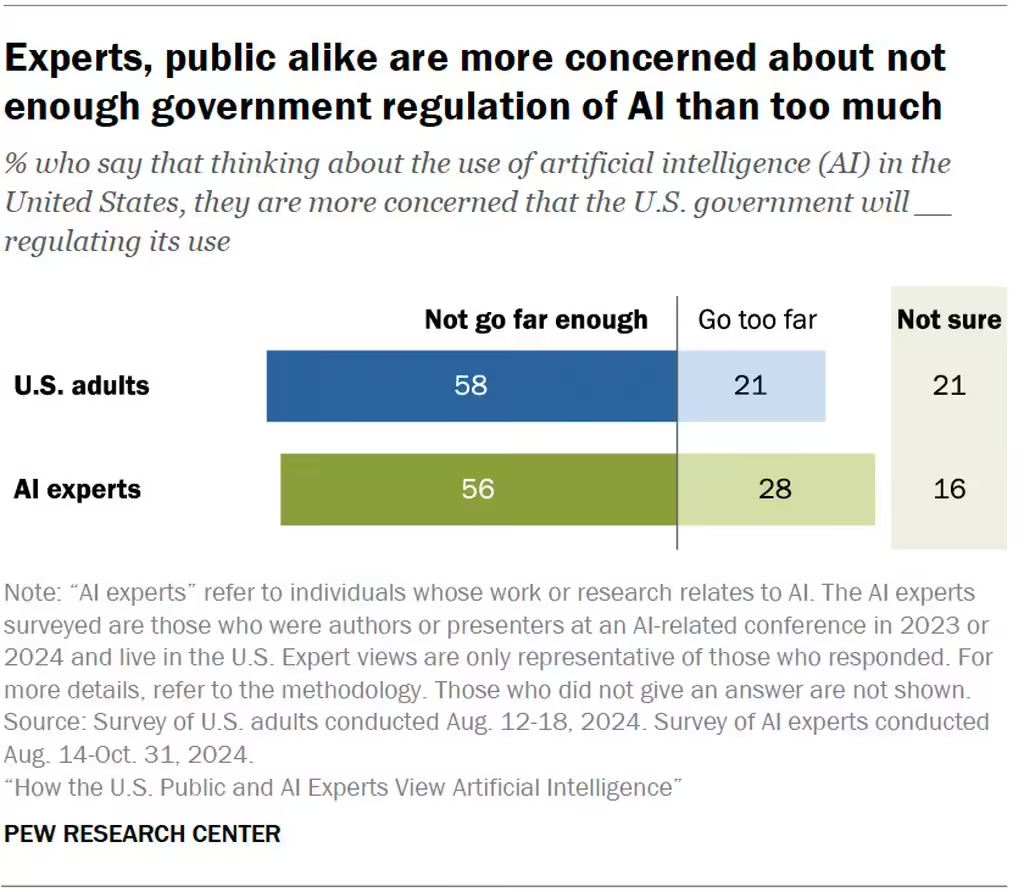April 4 News.Pew Research CenterThe latest survey shows that for artificial intelligence (AI) on human society.USAThere are significant differences between the public and AI experts.

A Pew Research Center survey of 5,400 U.S. adults and more than 1,000 AI experts reveals a wide gulf in expectations for AI.
56% of experts predict AI will have a positive impact over the next 20 years, compared to 17% of the public. at the level of everyday applications, 47% of experts are excited about the expanded use of AI, while the public's share plummets to 11%. it's worth noting that public concern about AI has been on the rise since 2021, with those who are wary far outnumbering those who are optimistic. It's worth noting that public concern about AI has risen since 2021, with caution far outpacing optimism.
The survey found that the gender gap is more pronounced in the expert community: 63% of male experts are optimistic about AI development, compared to 36% of female experts. the gender gap is smaller in the public domain (22% male vs 12% female).
With regard to employment impacts, 73%'s experts believe that AI will improve the way work is done, while the public only 23% agrees. Judgments about the risks to specific occupations also differed: more experts thought truck drivers and lawyers would lose jobs, while the public was more concerned about factory workers, musicians, teachers and doctors being hit.Both sides agreed, however, that cashiers and journalists have higher occupational risks, with just under 30% respondents believing that counselors would be threatened.
Despite the differences, experts and the public agree on two major areas: only 10% respondents believe that AI will have a positive impact on elections; 55% members of the public and 57% experts are concerned about the lack of government regulation and are calling for greater personal control over the use of AI.